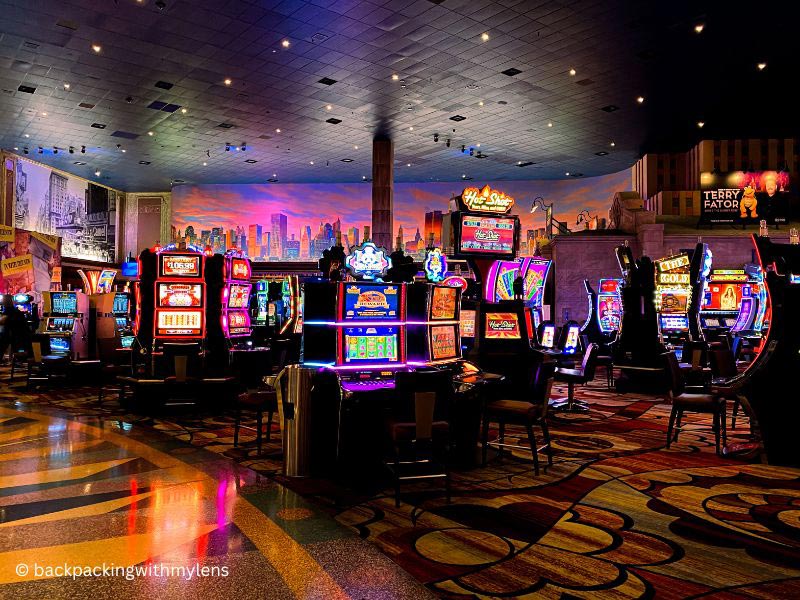
Gambling has been an integral part of human recreation for millions of years, developing through societies and periods to become the dynamic casino games we know today. From the ancient Chinese and Romans, who engaged in different forms of betting and luck, to the sophisticated gaming floors of today’s casinos, the allure of risk and reward has captivated individuals across the globe. The change from basic dice games and rudimentary betting setups to the opulent environments of modern casinos reflects significant strides in both cultural standards and technological.
As societies evolved, so too did the complexity of gambling activities, with casino games emerging as a separate category of entertainment and thrills. These activities have changed from casual gatherings centered around wooden tables to sprawling, opulent establishments designed to attract players. Today, we delve into this captivating journey, analyzing how traditional practices laid the groundwork for the diverse and exciting casino activities that bring pleasure to countless people worldwide.
spintax
Historical Wagering Practices
Betting has significant roots in human past, with proof of games of chance tracing back to ancient societies. Archaeologists have found that as far back as 3000 BC, the people of China were using basic forms of gambling with dice made from wood. Similarly, ancient cultures of Mesopotamia engaged in gambling activities, often relying on the casting of lots or dice to determine results. These early forms of gambling served not only as recreation but also played crucial roles in social and cultural practices.
The Egyptians also participated in betting activities, with games that included betting on the outcomes of various occurrences, including athletic events and spiritual festivals. Artifacts such as dice and depictions of players from ancient tombs demonstrate that gambling was a popular pastime. It provided both relaxation and a means of engaging in social connections, often linked to celebratory occasions or important gatherings. This activity showed the universal appeal of chance and rivalry throughout the ages.
In ancient Rome, betting became a prevalent practice among the citizens, as shown in references in literature and the establishment of rules around certain activities. Romans enjoyed a variety of betting activities, from betting on horse races to playing games similar to modern-day board games. The legal system surrounding these activities began to take shape, establishing the foundations for betting regulations that would develop in the centuries to come. The fame of gambling during this period set the stage for the development of gambling house games in the future.
The Development of Casino Games
Casino games have experienced significant transformations from their origins to the contemporary entertainment selections. In historical civilizations, gaming was frequently linked to ceremonial practices, with dice games found in the ancient Mesopotamian region and betting on the outcomes of events in classical Rome. These primitive forms of gambling laid the basis for the formal games we see today. The change from informal gambling to organized games took place as societies began creating rules and venues for wagering, demonstrating cultural values and practices.
The medieval period saw the rise of card games, which gained fame among European nobility. Games like first and the game baccarat became essential components in social gatherings. The creation of printing technology additionally enabled the spread of playing cards, making them more available to the common people. https://88clbrr.com As gambling houses began to proliferate, these card games evolved into adaptations that appealed to wider audiences, eventually leading to the founding of casinos as specialized venues for gaming.
The 1900s marked a crucial point in the development of casino games, with the rise of commercial casinos in Vegas and other gaming hubs. This era saw the introduction of games like slot machines and modern versions of table games, complete with advanced graphics and intricate betting structures. The arrival of online casinos in the 1990s further revolutionized the gaming industry, allowing players to access a vast array of casino games from the convenience of their homes. Today, gambling games go on to progress, blending traditional elements with cutting-edge technology to create immersive experiences for players around the globe.
Contemporary Gaming Regulations
In the past few years, the environment of gambling laws has evolved substantially, particularly as tech advances and online gambling have become more prevalent. Governments around the world have introduced multiple laws and standards to make certain that gaming activities are performed equally, responsibly, and transparently. These laws often include factors such as licensing, marketing, player protection, and responsible gaming measures. Authorities aim to reduce problems such as problem gambling and cheating while promoting a equitable gambling environment.
The rise of online gambling sites has necessitated a new approach to regulation. Many jurisdictions have set up specific internet-based gambling structures that cater to online gambling, allowing operators to provide their offerings legally. These frameworks often demand operators to secure permits, adhere to strict security standards, and offer assistance options to assist players. By closely observing internet activities, authorities can more effectively protect players from potential harm and ensure that gaming is carried out in a protected manner.
Moreover, contemporary gaming regulations are increasingly focusing on responsible gaming strategies. Many casinos and internet-based platforms now adopt features such as player exclusion, deposit limits, and breaks to help players manage their gaming habits. Awareness campaigns aimed at educating about the risks of gambling are also common. As the sector continues to grow, the emphasis on responsible gaming continues to be a cornerstone of governing efforts, showing a commitment to promoting a secure and enjoyable gaming experience for all gamblers.
